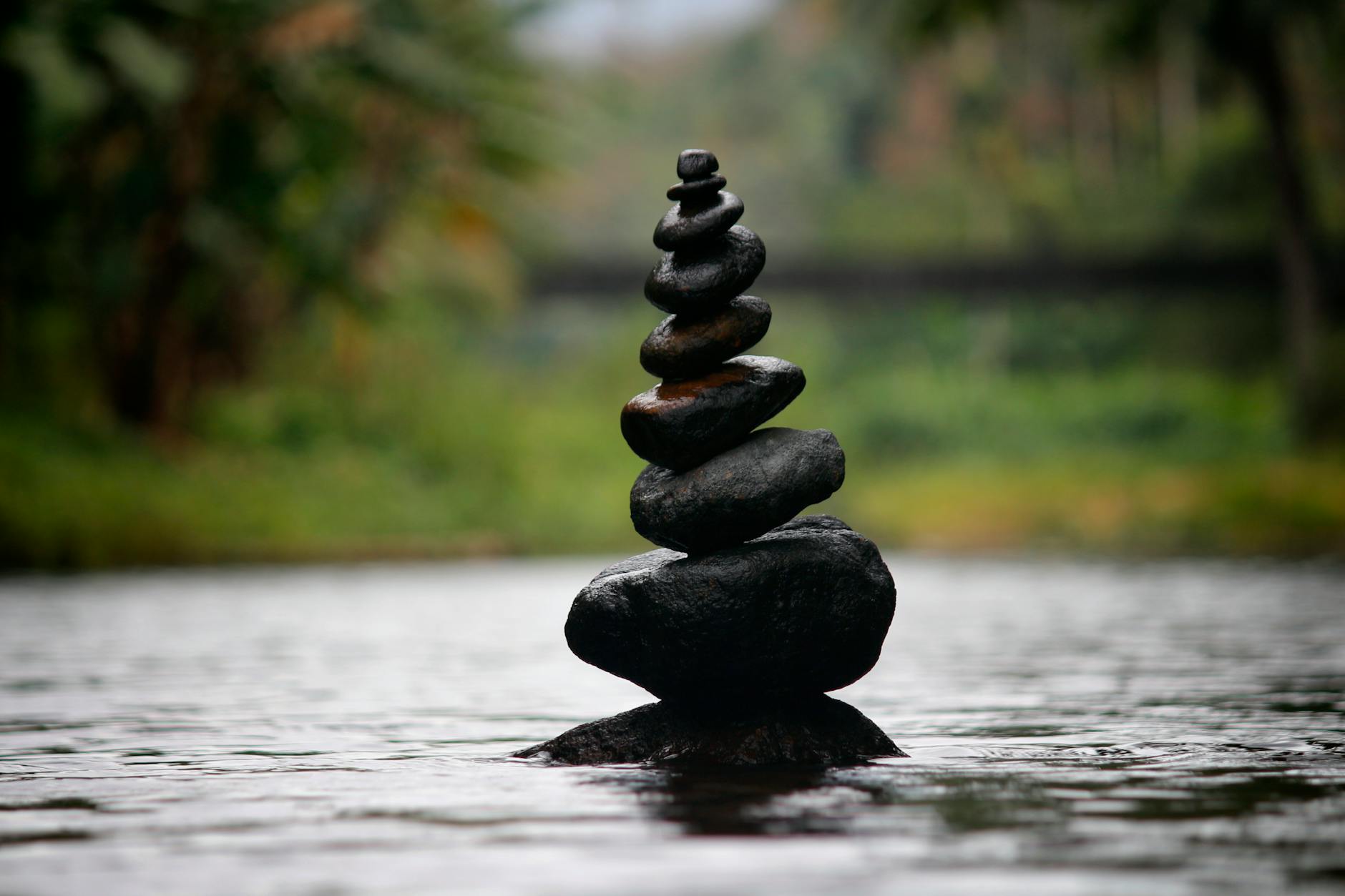What Does It Mean to “Lead a Balanced Life”?

Young adulthood (20–39) is packed with milestones—first big roles, more study, committed relationships, parenting, and financial foundations. Balance here means intentional alignment across the big domains—Work, Life, Family, Studying, Recreation, and the cross-cutting pillars: Financial, Physical, Mental & Emotional, Relationships, Digital, Personal Growth. It’s not equal time every day; it’s right-sized attention over weeks and months so one area doesn’t chronically crowd out the others.
♻️ Reality check: Balance flexes by season (exam crunch, newborn, product launch). The goal is recalibration, not perfection. When one domain is neglected for too long, stress spills over—e.g., chronic overwork can harm mental health, relationships, and physical vitality.
🧩 What balanced looks like: You can meet essentials (sleep, nutrition, movement), maintain a few close relationships, make steady progress on work/study, and still have protected personal time.
🚩 Early red flags: Regularly skipping sleep or exercise, constant irritability, “Sunday dread,” dwindling social time, impulse spending, or doom-scrolling late at night.
Work Balance
Work can be meaningful, but without boundaries, it’s a prime driver of burnout. Burn-out is defined in ICD-11 as a syndrome due to chronic workplace stress (energy depletion, cynicism, reduced efficacy)—an occupational phenomenon, not a medical disease. World Health Organization
Long hours are risky: – 55 hours/week is associated with +35% stroke and +17% ischemic heart disease risk vs. 35–40 hours. World Health Organization
🛑 Boundaries that help
- A clear stop time most days
- Meeting-free focus blocks
- One weekly no-after-hours day.
Impact of imbalance:
- Mentally—poorer concentration and decisions
- Emotionally—irritability, low motivation;
- Physically—fatigue, lowered immunity;
- Relationally—strained connections.
📊 Self-check: If 2 nights/week you’re working past 9 pm or opening the laptop before bed, you’re likely in a red zone.
Life Balance (Personal Time & Self-Care)
“Life” means protected time for rest, hobbies, spirituality, and play, outside work and caregiving. Research consistently links work–family conflict (a marker of poor balance) to higher stress, anxiety, and burnout, underscoring the need for routine recovery time. Frontiers
Impact of Imbalance
Mental fatigue and overload
Elevated blood pressure
Shrinking support networks.
Less joy/creativity
Headaches
Insomnia
Family Balance
Roles shift (partnering, parenting, caregiving). Balance means showing up for family while honoring personal limits and renegotiating roles during high-demand seasons.
Impact of imbalance:
Erosion of trust and closeness
Tension and resentment
Distraction and worry
Hypertension/fatigue

Effective Ways TransformationWithin Helps You Lead a Balanced Life
At TransformationWithin, we use an evidence-informed, whole-life coaching approach to help young adults not just survive these pivotal years — but truly thrive.
🧭 Values → Calendar Alignment
- Mini-course that translates your personal values into weekly time blocks (work, study, rest, family, life).
- Includes: seasonal recalibration ritual, trade-off scripts, and printable planners.
🧑💻 Work Boundaries & Burnout Shield
- Video playbooks on workload negotiation
- Meeting hygiene strategies
- Energy management systems
📱 Digital Hygiene & Focus
- Reset your algorithms + triage notifications
- Screen-off bedtime routines
- 7-day digital detox challenge
- Tools: focus timers + distraction budget
🕯️ Life & Self-Care Architecture
- Hard-schedule sleep, movement, recovery
- Habit-stacking templates
- Relapse-recovery checklists
- 10-minute nightly “off-ramp”
🏃♀️ Physical Foundations (Move • Sleep • Fuel)
- No-equipment movement snacks
- Sleep reset routines
- Quick meal-timing guides
- Printable weekly action grids
🧠 Mental & Emotional Resilience
- Nervous-system resets
- Pre/post-stress micro-drills for tough days
💸 Financial Calm Starter (SA-Friendly)
- Values-based spending course 🇿🇦
- ZAR-ready budgets
- 48-hour pause rule
- Event/holiday pressure shields
- Debt-snowball tracker + savings automations
🤝 Relationships, Boundaries & Consent
- Assertive communication mini-labs
- Repair scripts for conflict
- Consent & digital intimacy safety
- “Connection cadence” for friendships
👨👩👧 Family Systems & Caregiving Balance
- Role-negotiation playbooks
- Caregiving rotas
- Season-of-life reassignment tools
📚 Study & Upskill Without Burnout
Work-study boundary rules + late-night cutoff
Focus-sprint method
Exam-week playbook
Memory techniques
Semester planner
With TransformationWithin, you’ll gain practical systems, science-based strategies, and personalized tools to protect your health, relationships, career, and future.
Studying Balance
Learning (degrees, certifications, micro-courses) should enhance life, not replace sleep, health, or relationships. Working + studying increases time pressure and anxiety if the pace and reco
Impact of Imbalance
Prolonged sitting → musculoskeletal strain
Reduced social/leisure time
Memory/focus dips
Enthusiasm fades
Recreational Balance
Recreation is a mood and brain regulator. Reviews show leisure engagement is linked to better mental health and resilience across ages. PMC+1 Regular physical activity amplifies those benefits.
Why it works: Novelty + movement + joy = stress reset and creative boost, without draining time or willpower.
Impacts of Imbalance
Fewer chances for movement/outdoors
Isolation from fun group activities
Narrowed problem-solving
Irritability/restlessness
Financial Balance:
- Money steadiness in your 20s–30s sets up future security.
- Financial stress is a top driver of anxiety and relationship conflict.
- In South Africa, youth unemployment (15–34) was 46.1% in Q1 2025, raising pressure on budgeting and planning. Statistics South Africa
Guardrails:
- “Bills- first day after payday.
- “Wait-48-hours” rule for non-essentials.
- One savings bucket labeled with a why (e.g., deposit, study, travel).
- A monthly cap for gifts/eating out so you can keep our emergency fund on track.
Impact of imbalance:
- Distraction and worry
- Anxiety/frustration
- Cortisol-related strain
- Recurring conflict at home.
Physical Health & Wellness Balance
- Regular movement
- Restorative sleep
- Nutritious eating
- Adults should aim for 150–300 min/week of moderate activity
- 75–150 min vigorous, or a mix). PMC
- Movement minimums– 20 active minutes most days
- 2 strength sessions/week + movement snacks (stairs, stretches)
Sleep guardrails:
- Fixed wake time
- Cool/dark room
- No screen time before bed
- Impact of imbalance: Duller cognition; lower mood/confidence; higher chronic-disease risk; drained energy for work/study/social life.
Mental & Emotional Balance
This is stability, coping skills, and emotional regulation. SA data show ~30% lifetime prevalence of common mental disorders, and only ~25% of those who need care receive it—a large treatment gap. PMCWits University
Impact of imbalance:
Weaker focus/problem-solving
Mood swings and burnout
Headaches/GI issues
Withdrawal or conflict
Lowered immunity
Relationship & Social Balance
Healthy friendships and intimate bonds are powerful predictors of well-being and longevity (Harvard Study of Adult Development).
A landmark meta-analysis shows people with stronger social relationships have ~50% higher survival odds than those with weaker ties. Harvard GazettePLOS
Digital Balance
Screens need boundaries to protect focus, sleep, and mood. South Africa sits well above the global average for time spent online.
Impact of Imbalance
Displaced real-world bonding
Comparison stress
Eyestrain
Posture issues
Eroded concentration
Personal Growth & Spiritual Balance
Purpose, values work, skill-building, and for many, spiritual practice provides direction and resilience. People with a clearer sense of purpose generally show lower burnout risk and more adaptive coping.
Grounding practices:
- Prayer/meditation
- Gratitude notes
- Service
- volunteering
Impact of imbalance:
- Reduced empathy and shared vision
- Stress-related symptoms
- Mental stagnation
- Dissatisfaction
The Synergy of Sustainable Balance
- Balance isn’t perfection; it’s ongoing alignment and recalibration.
- Neglect in one area (e.g., finances) ripples into mental health, performance, and relationships.
- Tending to Work, Life, Family, Studying, Recreation, Financial, Physical, Mental & Emotional, Relationships, Digital, Personal Growth now builds long-term well-being and resilience.
Our Programmes
Our coaches provide comprehensive interventional support for students through both group and individual program options.
Get In Touch
Reach out to learn more about how we can help, or if you have any questions or concerns
